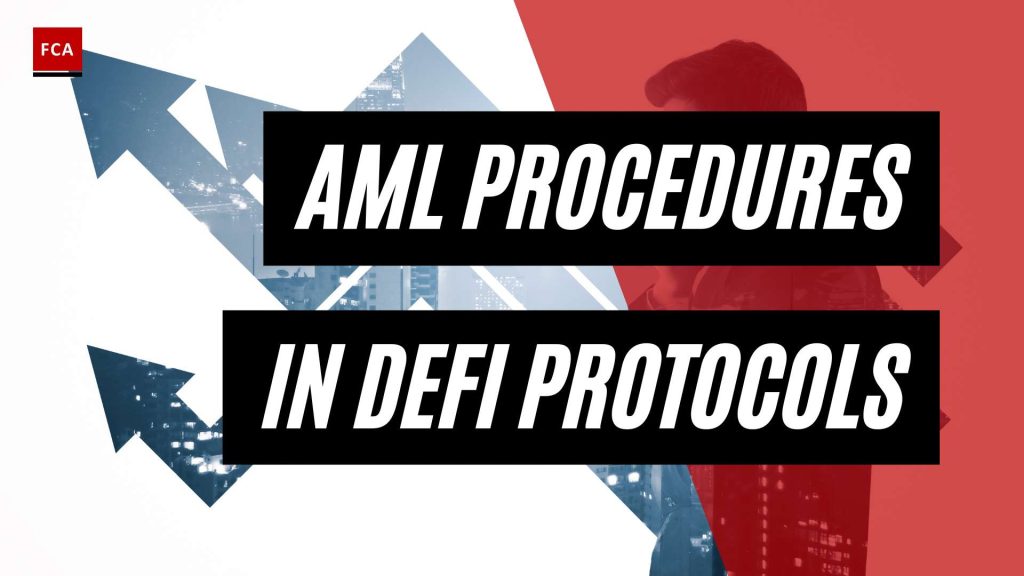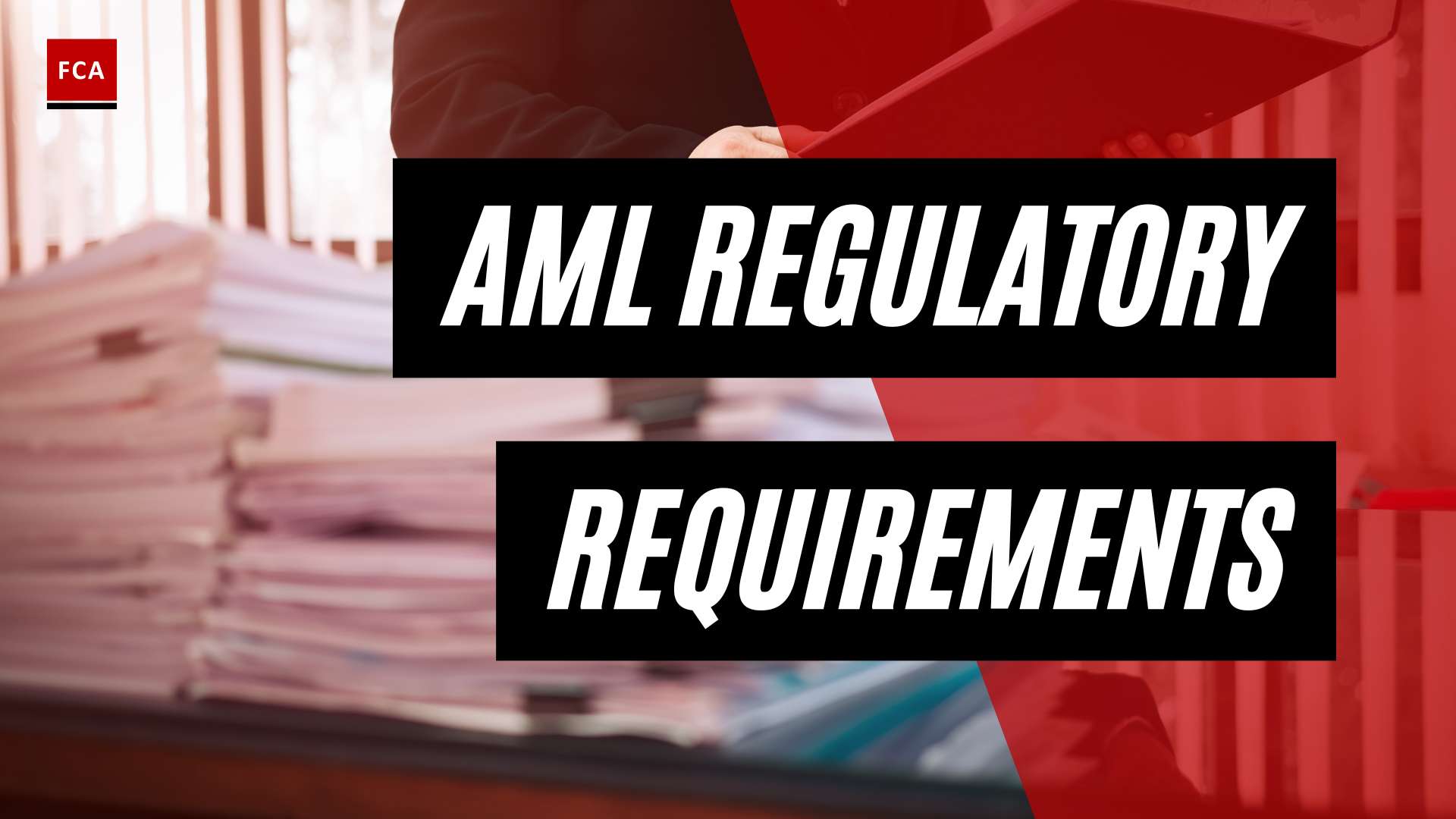Understanding AML in DeFi
To comprehend the implications of Anti-Money Laundering (AML) in Decentralized Finance (DeFi), it is essential to explore the basics of AML in the context of decentralized finance and the challenges it presents.
Introduction to AML in Decentralized Finance
AML refers to the set of regulations and procedures designed to prevent financial systems from being used for money laundering activities. In recent years, the emergence of DeFi has revolutionized the financial landscape by enabling individuals to engage in decentralized peer-to-peer transactions without the need for intermediaries.
However, the decentralized and cross-border nature of DeFi transactions adds complexity to AML compliance efforts. Transactions conducted on DeFi platforms often involve pseudonymous parties from different jurisdictions, making it challenging to track and monitor potential money laundering activities (ACAMS).
Traditional AML procedures face significant challenges when applied to transactions conducted on DeFi platforms. The absence of intermediaries and the presence of pseudonymity in transactions hinder the ability to implement traditional AML controls effectively (ACAMS). The growth of DeFi has raised concerns about the potential for illicit financial activities due to the lack of transparency and regulation (ACAMS).
Challenges of AML Compliance in DeFi
DeFi platforms present unique challenges for AML compliance. One of the key challenges is the absence of intermediaries, which makes it difficult to implement traditional AML measures and know-your-customer (KYC) procedures. Without intermediaries, it becomes more challenging to detect and prevent illicit activities on these platforms (LinkedIn).
Additionally, DeFi platforms often rely on smart contracts, which are self-executing contracts with the terms of the agreement directly written into code. These smart contracts can execute transactions automatically without human intervention, potentially bypassing traditional AML controls. This lack of human involvement can make it more difficult for regulators to trace the source and destination of funds, further complicating AML compliance efforts.
Addressing these challenges and ensuring effective AML compliance in the DeFi space is crucial for maintaining the integrity of the financial system and preventing money laundering activities. In the following sections, we will explore the regulatory landscape, implementation of AML procedures, and the role of technology in achieving AML compliance in the evolving world of DeFi.
Regulatory Landscape for AML in DeFi
As the decentralized finance (DeFi) space continues to evolve, regulators are focusing on implementing robust anti-money laundering (AML) procedures to address potential risks and ensure compliance. Two key entities that play a significant role in shaping the regulatory landscape for AML in DeFi are the US Treasury and the Financial Crimes Enforcement Network (FinCEN).
US Treasury’s Guidance on AML Procedures
In March 2023, the US Treasury’s Office of Foreign Assets Control (OFAC) issued guidance emphasizing the importance of implementing comprehensive AML programs in DeFi platforms. This guidance aims to enhance security and integrity in decentralized financial transactions and prevent them from being misused for illicit purposes (Forbes).
The US Treasury’s guidance underscores the need for DeFi platforms to establish effective Know Your Customer (KYC) practices, transaction monitoring systems, and reporting mechanisms. By implementing these measures, DeFi platforms can contribute to the overall integrity of the financial system and prevent illicit activities such as money laundering and terrorist financing.
Financial Crimes Enforcement Network’s (FinCEN) Focus on DeFi
The Financial Crimes Enforcement Network (FinCEN) is intensifying its attention on DeFi platforms to ensure compliance with AML regulations and enhance transparency in transactions. FinCEN’s efforts include monitoring virtual asset service providers (VASPs) operating in the DeFi space to prevent money laundering and illicit activities in the crypto sphere (Forbes).
By scrutinizing DeFi platforms, FinCEN aims to identify potential risks and vulnerabilities that may be exploited for money laundering or other illicit purposes. This increased oversight helps protect the integrity of the financial system and ensures that the DeFi space operates in compliance with AML regulations.
To navigate the regulatory landscape effectively, DeFi platforms and participants must stay informed about the evolving AML guidelines and requirements. Compliance with AML procedures not only helps to maintain regulatory compliance but also enhances the credibility and trustworthiness of the DeFi ecosystem.
To address the regulatory expectations, DeFi platforms should consider implementing comprehensive AML frameworks, conducting regular audits, and adhering to industry best practices. By doing so, they can contribute to a secure and compliant DeFi environment while promoting the growth and adoption of decentralized finance.
Implementing AML Procedures in DeFi Transactions
To maintain the integrity of decentralized finance (DeFi) transactions and comply with anti-money laundering (AML) regulations, DeFi platforms need to establish robust AML procedures. Implementing these procedures requires a thorough understanding of the unique challenges posed by the decentralized nature of DeFi and the lack of intermediaries. In this section, we will explore two key aspects of implementing AML procedures in DeFi transactions: KYC requirements for DeFi platforms and the risk-based approach for AML compliance.
KYC Requirements for DeFi Platforms
Know Your Customer (KYC) requirements play a crucial role in preventing money laundering and other illicit activities in the DeFi space. DeFi platforms must collect and verify customer information to ensure compliance with regulatory obligations and maintain the integrity of the ecosystem. However, the decentralized nature of DeFi platforms presents challenges in implementing traditional KYC measures.
To address these challenges, DeFi platforms can leverage decentralized identity solutions, which utilize blockchain technology to streamline the KYC process while preserving user privacy. These solutions enable users to maintain control over their personal data while providing the necessary information to meet regulatory requirements. By integrating decentralized identity solutions, DeFi platforms can enhance the security and integrity of transactions while reducing the burden on users.
Risk-Based Approach for AML Compliance
Complying with AML and combating the risks associated with money laundering and terrorist financing in the DeFi context requires a risk-based approach. DeFi platforms must identify, assess, and mitigate these risks effectively. Given the absence of intermediaries, implementing risk-based procedures becomes even more critical.
A risk-based approach involves conducting a comprehensive risk assessment to identify potential vulnerabilities and assess the level of risk associated with different transactions and users. Based on this assessment, DeFi platforms can implement appropriate AML measures proportionate to the identified risks. This may include transaction monitoring, suspicious activity reporting, and ongoing due diligence.
By adopting a risk-based approach, DeFi platforms can prioritize their resources and efforts to focus on the areas that pose the highest risk. This approach facilitates more efficient and effective AML compliance, allowing platforms to detect and mitigate illicit activities while minimizing unnecessary burdens on legitimate users.
Implementing AML procedures in DeFi transactions is crucial to ensure compliance with AML/CFT regulations and prevent illicit activities. By adhering to KYC requirements and adopting a risk-based approach, DeFi platforms can contribute to the integrity and security of the decentralized financial ecosystem. To learn more about AML regulations in DeFi and the measures taken by different platforms, visit our article on AML regulations in DeFi.
Addressing the Challenges of AML in DeFi
As decentralized finance (DeFi) transactions continue to gain popularity, addressing the challenges of Anti-Money Laundering (AML) compliance becomes crucial. The decentralized and cross-border nature of DeFi transactions adds complexity to AML compliance efforts, as they are typically conducted by pseudonymous parties from different jurisdictions, making it harder to track and monitor for money laundering activities (ACAMS). In order to effectively combat money laundering in DeFi, several strategies can be employed.
On-Chain Analytics Tools for AML Monitoring
One way to address AML challenges in DeFi is through the use of on-chain analytics tools. These tools leverage the transparency of blockchain technology to analyze transactions and identify patterns that may indicate suspicious activities. By monitoring the flow of funds on the blockchain, these tools can help detect and prevent illicit financial activities. Implementing such analytics tools can enhance AML monitoring capabilities and provide valuable insights to regulatory authorities and financial institutions (ACAMS).
Collaboration with Industry Associations for Self-Regulatory Standards
Collaboration with industry associations can play a significant role in establishing self-regulatory standards for AML compliance in DeFi. By working together, industry participants can develop best practices and guidelines to ensure that DeFi platforms adhere to AML requirements. Self-regulation can help foster trust within the DeFi ecosystem and demonstrate a commitment to combating money laundering and other financial crimes. These efforts can also provide valuable input to regulators when developing AML regulations specific to DeFi (LinkedIn).
Decentralized Identity Solutions for KYC Processes
Know Your Customer (KYC) requirements play a crucial role in preventing money laundering and other illicit activities. Implementing effective KYC procedures is necessary for DeFi platforms to comply with regulatory obligations and maintain the integrity of the ecosystem. However, the lack of intermediaries in DeFi platforms poses challenges for traditional KYC processes. Decentralized identity solutions leveraging blockchain technology can help address these challenges by providing a secure and privacy-preserving means of verifying user identities. These solutions enable users to maintain control over their personal data while still meeting AML requirements (LinkedIn).
By leveraging on-chain analytics tools, collaborating with industry associations for self-regulatory standards, and adopting decentralized identity solutions for KYC processes, DeFi platforms can enhance their AML compliance efforts. These strategies aim to address the unique challenges posed by the decentralized nature of DeFi transactions and contribute to the overall integrity of the DeFi ecosystem. As regulators continue to focus on preventing illicit finance in DeFi, implementing robust AML procedures becomes increasingly important.
The Role of Technology in AML Compliance
As the regulatory landscape evolves, technology plays a crucial role in facilitating effective AML (Anti-Money Laundering) compliance within DeFi (Decentralized Finance) transactions. By harnessing the power of technology, DeFi platforms can enhance their AML procedures and mitigate the risks associated with financial crimes. Two key areas where technology proves instrumental in AML compliance are the automation of KYC processes and the ongoing monitoring and reporting of suspicious activities.
Automation of KYC Processes
KYC (Know Your Customer) requirements are an integral part of AML compliance in the DeFi space. Implementing effective KYC processes ensures that the identities of users are verified, reducing the risk of illicit activities. Leveraging technology for the automation of KYC processes can save time, reduce errors, and enhance efficiency for DeFi companies. Automated processes, such as document verification, facial recognition, and identity checks, streamline the KYC process and enhance accuracy (KYC-Chain).
By utilizing advanced technologies, DeFi platforms can verify customer identities more effectively, ensuring compliance with AML regulations. Automation also allows for real-time checks against global watchlists and databases to identify potential risks and individuals associated with illicit activities. This streamlined approach helps to prevent money laundering, terrorist financing, and other financial crimes within the DeFi ecosystem.
Ongoing Monitoring and Reporting of Suspicious Activities
AML compliance is an ongoing process that requires continuous monitoring of customer activities. Ongoing monitoring enables DeFi platforms to detect any suspicious behavior or changes in risk profiles promptly. Technology plays a crucial role in this aspect of AML compliance.
By leveraging advanced analytics and machine learning algorithms, DeFi platforms can monitor transactions and user behavior in real-time. These on-chain analytics tools allow for the identification of patterns and anomalies that may indicate potential illicit activities. By continuously monitoring transactions and user behavior, DeFi platforms can promptly report and take appropriate action against suspicious activities.
Furthermore, technology enables the automation of reporting processes. DeFi platforms can generate reports on suspicious activities and submit them to regulatory authorities as required. This automation ensures compliance with reporting obligations and facilitates the sharing of information with relevant stakeholders in the fight against financial crimes.
By embracing technology and leveraging its capabilities, DeFi platforms can strengthen their AML procedures, enhance compliance efforts, and contribute to a more secure and transparent decentralized financial ecosystem. The automation of KYC processes and ongoing monitoring of suspicious activities through technology-driven solutions are key steps toward achieving robust AML compliance in DeFi transactions.
AML Compliance in the Metaverse
As decentralized finance (DeFi) expands into the metaverse, AML compliance faces unique challenges and difficulties in identifying individuals involved in transactions. The metaverse, a virtual reality space where users interact with each other and digital assets, presents a decentralized environment that poses obstacles to traditional AML compliance measures.
Challenges and Difficulties in Identifying Individuals
Within the metaverse, it becomes increasingly challenging to identify the true identities of individuals involved in transactions. The use of pseudonyms and anonymous digital wallets makes it difficult to link real-world identities to virtual transactions. This anonymity can potentially be exploited for illicit activities, including money laundering and terrorist financing.
Coordinating regulatory efforts across different jurisdictions becomes more complex in the metaverse due to its decentralized nature. The lack of a central authority or governing body makes it challenging to enforce AML regulations consistently. Jurisdictional boundaries blur, requiring innovative approaches to ensure effective AML compliance.
Centralized Authorities vs. Decentralized Systems
To address AML compliance in the metaverse, two approaches emerge: the establishment of centralized authorities or the utilization of decentralized systems.
One approach involves the development of centralized authorities responsible for monitoring financial transactions within the metaverse. These authorities could track and analyze virtual transactions, ensuring compliance with AML regulations. By implementing centralized oversight, it becomes possible to enforce AML measures and hold individuals accountable for their financial activities.
Alternatively, decentralized systems can utilize smart contracts and blockchain technology to ensure transparency and accountability in financial activities. By leveraging the immutable nature of blockchain, transactions within the metaverse can be recorded and accessed by all participants. This transparency can help identify suspicious activities and promote AML compliance without relying on a centralized authority.
As the metaverse continues to evolve, regulators and industry participants need to collaborate to establish effective AML compliance frameworks that strike a balance between privacy and security. It is crucial to explore innovative solutions that leverage technology and incorporate AML best practices to mitigate the risk of financial crimes in the metaverse.
To learn more about AML compliance in the context of decentralized finance, explore our articles on AML regulations in DeFi, DeFi platforms and AML measures, and AML compliance in decentralized finance.
The Rise of NFTs in DeFi and AML Compliance
As the world of decentralized finance (DeFi) evolves, the emergence of non-fungible tokens (NFTs) has introduced new considerations for anti-money laundering (AML) compliance. NFTs have the potential to transform the ownership and trading of digital assets by providing verified ownership and provenance, reducing fraud, and supporting artists in monetizing their work through unique digital artifacts (Sanction Scanner).
Verified Ownership and Provenance
One of the key advantages of NFTs in DeFi is the ability to establish verified ownership and provenance of digital assets. Each NFT is unique and can be associated with a specific digital artwork, collectible, or other digital asset. The use of blockchain technology ensures that the ownership and transaction history of each NFT can be easily traced and verified. This transparency helps to mitigate the risk of money laundering and fraud by providing a clear record of ownership and the origin of the asset.
Reducing Fraud and Supporting Artists
NFTs in DeFi offer enhanced security and protection against fraud. The blockchain-based nature of NFTs ensures that they cannot be duplicated or tampered with, providing a level of authenticity that is crucial in the digital realm. This reduces the risk of counterfeit NFTs and protects both buyers and sellers from fraudulent transactions.
Furthermore, NFTs have opened up new opportunities for artists to monetize their work directly, without the need for intermediaries. Artists can tokenize their creations as NFTs and sell them on decentralized marketplaces, allowing them to retain ownership and receive direct compensation for their art. This empowers artists and provides them with a fairer and more transparent revenue stream.
As the popularity of NFTs continues to grow, it is important for AML compliance measures to keep pace with these developments. Regulators and industry participants are increasingly focusing on implementing AML frameworks and guidelines for NFTs in DeFi to ensure that these innovative assets are not exploited for illicit purposes. It is crucial for DeFi platforms and marketplaces to adopt robust AML policies and procedures to address the unique risks associated with NFTs.
By leveraging the benefits of NFTs, such as verified ownership, provenance, reduced fraud, and support for artists, while simultaneously implementing effective AML measures, the DeFi ecosystem can strike a balance between innovation and regulatory compliance. This will foster the continued growth and adoption of NFTs in a secure and transparent manner.
For more information on AML compliance in DeFi and the challenges associated with decentralized finance, refer to our previous sections on AML in Decentralized Finance and AML Procedures in DeFi Transactions.
Ensuring Security and Integrity in DeFi
As decentralized finance (DeFi) continues to gain traction, ensuring the security and integrity of transactions becomes paramount. Mitigating risks for DeFi users and preventing illicit finance are key areas of focus in the industry.
Mitigating Risks for DeFi Users
DeFi users face various risks, including security vulnerabilities, hacks, smart contract failures, exploits, market manipulation, and price volatility. To mitigate these risks and protect users’ funds, thorough auditing, testing, and security measures are necessary LinkedIn.
Platforms operating in the DeFi space must prioritize the implementation of robust security protocols, including secure coding practices, regular code audits, and bug bounty programs. Additionally, user education and awareness about potential risks and best practices are essential in promoting a safe DeFi ecosystem. For more information on AML risks in decentralized finance, refer to our article on aml risks in decentralized finance.
Regulatory Focus on Preventing Illicit Finance in DeFi
Regulators are increasingly emphasizing the importance of preventing illicit finance in the DeFi space. The US Treasury’s Office of Foreign Assets Control (OFAC) issued guidance in March 2023, highlighting the need for robust AML programs in DeFi platforms Forbes. This guidance aims to promote security and integrity in decentralized financial transactions and prevent them from being misused for illicit purposes.
Furthermore, the Financial Crimes Enforcement Network (FinCEN) is intensifying its focus on DeFi platforms to ensure compliance with AML regulations and enhance transparency in transactions Forbes. This increased scrutiny includes monitoring virtual asset service providers (VASPs) to prevent money laundering and illicit activities in the crypto space.
To address regulatory concerns and maintain compliance, DeFi platforms need to adopt AML procedures similar to those in traditional financial institutions. By implementing effective AML measures, DeFi services can deter financial crimes and contribute to the overall integrity of the decentralized finance sector Forbes.
To navigate the evolving regulatory landscape, DeFi platforms should stay informed about relevant AML guidelines, regulations, and frameworks. Collaborating with industry associations to establish self-regulatory standards can also help ensure compliance and enhance the reputation of the DeFi ecosystem. For further information on AML guidelines for DeFi projects, refer to our article on aml guidelines for defi projects.
AML Compliance in Decentralized Finance (DeFi) Transactions
As decentralized finance (DeFi) continues to gain traction, ensuring compliance with anti-money laundering (AML) procedures becomes crucial. Regulators are increasingly focusing on the AML risks associated with DeFi transactions to maintain the integrity of the financial system. In this section, we will explore the implications and measures related to AML procedures in DeFi transactions.
Regulatory Landscape for AML in DeFi
To address the AML risks in DeFi, regulatory bodies have issued guidelines emphasizing the need for robust AML procedures. The US Treasury’s Office of Foreign Assets Control (OFAC) issued guidance in March 2023, stressing the importance of implementing AML programs in DeFi platforms to prevent illicit activities and ensure the security and integrity of transactions (Forbes). Additionally, the Financial Crimes Enforcement Network (FinCEN) is intensifying its scrutiny of DeFi platforms to enhance transparency and prevent money laundering in the crypto space (Forbes).
Implementing AML Procedures in DeFi Transactions
DeFi platforms need to adopt effective AML procedures similar to traditional financial institutions. This includes implementing know-your-customer (KYC) requirements for user identification and a risk-based approach to compliance (Forbes). By verifying the identity of users, DeFi platforms can mitigate the risk of illicit activities and enhance the overall security of transactions. To learn more about the specific requirements and measures for AML compliance in DeFi, refer to our article on aml compliance in decentralized finance.
Addressing the Challenges of AML in DeFi
DeFi poses unique challenges for AML compliance due to the absence of intermediaries, making it difficult to implement traditional AML measures. However, there are innovative approaches to address these challenges. On-chain analytics tools can be utilized for AML monitoring, allowing for the detection of suspicious transactions and patterns. Collaboration with industry associations can also facilitate the establishment of self-regulatory standards and best practices for AML compliance in DeFi. Furthermore, decentralized identity solutions can streamline the KYC process by providing secure and verifiable identities for users.
The Role of Technology in AML Compliance
Technology plays a vital role in AML compliance for DeFi transactions. Automation of KYC processes enables efficient onboarding of users while ensuring compliance with regulatory requirements. Ongoing monitoring and reporting of suspicious activities through advanced analytics tools help identify and prevent potential money laundering or illicit finance activities. These technological advancements aid in maintaining the integrity of DeFi transactions and complying with AML regulations.
By addressing the challenges and implementing effective AML procedures, the DeFi ecosystem can build trust with regulators, promote transparency, and mitigate the risks associated with illicit finance. Additionally, as the popularity of non-fungible tokens (NFTs) rises in DeFi, it becomes crucial to ensure AML compliance, verify ownership, and prevent fraud, supporting both artists and the integrity of the market.
To maintain security and integrity in DeFi, it is essential for platforms to mitigate risks for users and adhere to regulatory guidelines governing AML procedures. By doing so, DeFi can continue to thrive as an innovative financial ecosystem while safeguarding against illicit activities.








